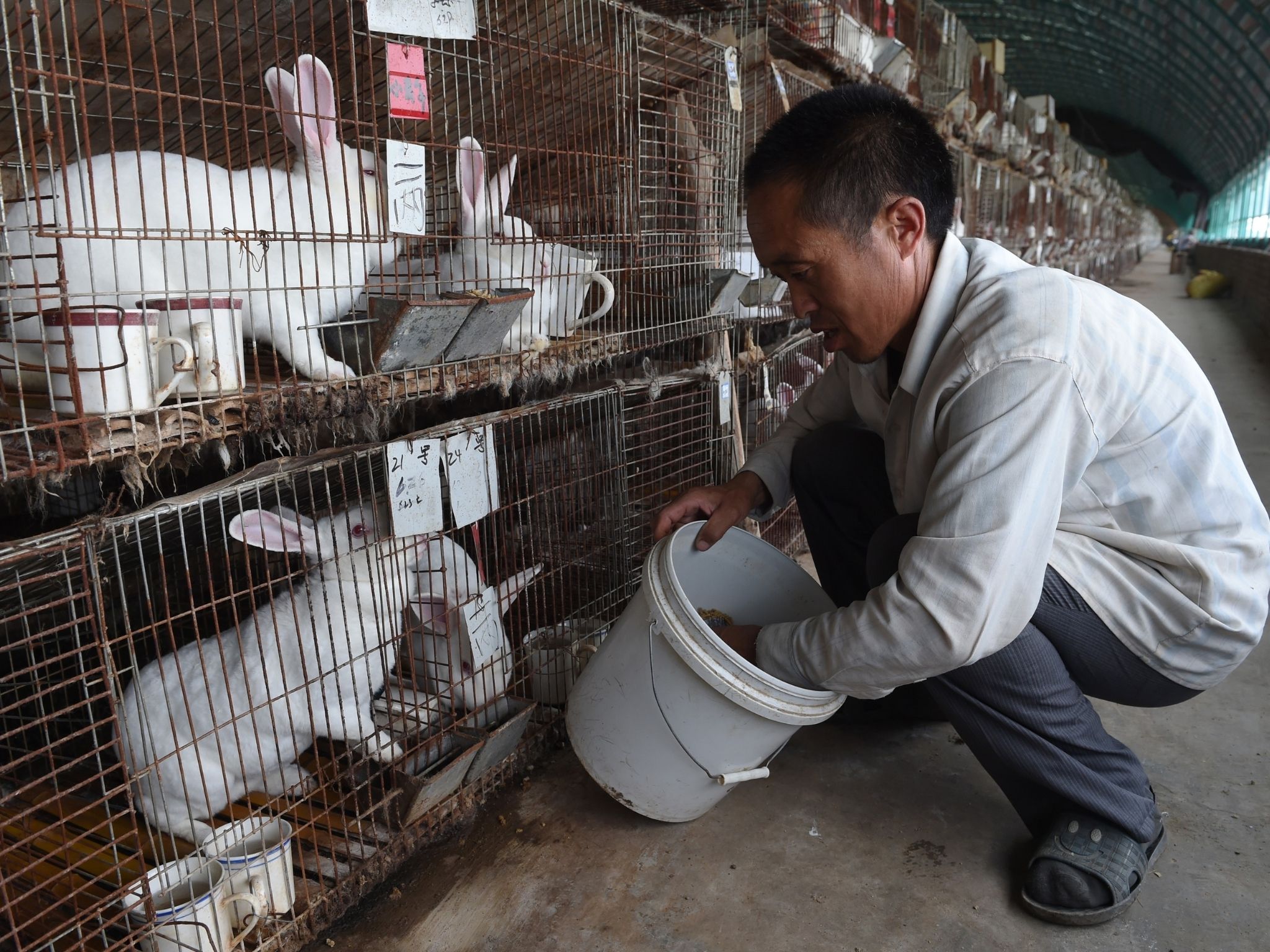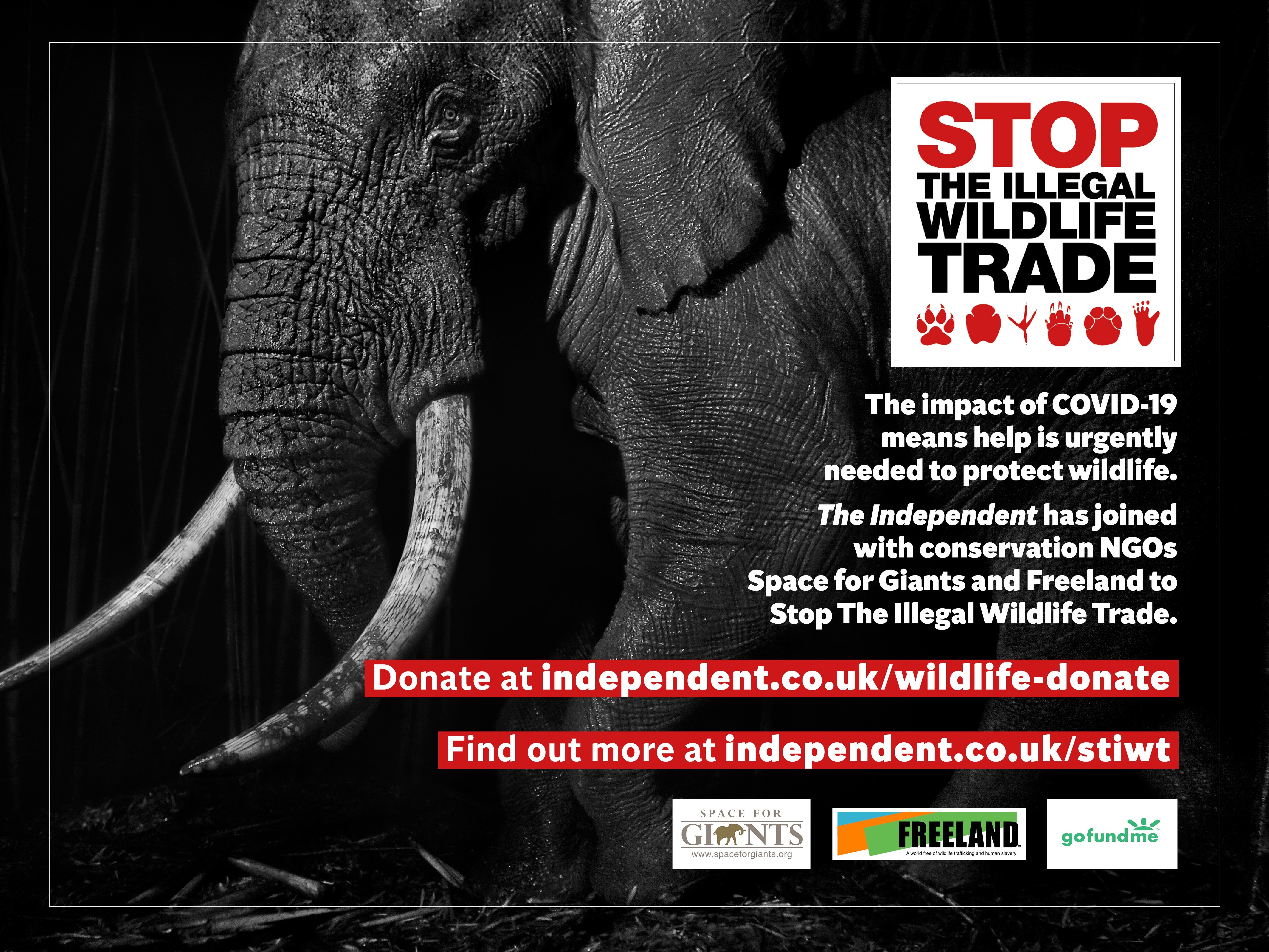China urged to call time on fur farms after WHO report into Covid’s origins
Conservationists fear unless legal loopholes allowing wildlife farms to continue to operate are closed, the industry risks aiding the emergence of the next zoonotic disease, writes William Yang


Dogs could be heard barking from the rows of cages that lines the farm. On the other side of the yard, more exotic animals like foxes, raccoon dogs and minks were also locked up in tiny containers.
Men used a broom-shaped tool with two probes at the front to electrocute a dog with white fur, immediately sending it falling paralysed to the ground. It struggled to get up and its body twitched. The procedure was repeated several times to more of the dogs, pushing them against the cage before stunning them.
As the animals lay unconscious, they were placed on a stone platform, an apparent signal they were ready to be butchered. In other photos, dead animals were piled up on the ground, with their furs peeled from their bodies.
The bloodied remains of these animals were left on the ground. It is not clear how much protection the men who killed these animals were wearing, but it is clear from the images that there were no attempts to cover up the bloodied remains with anything. It is likely that they may just be left on the ground while more animals would be killed.
These are details from a fur farm investigation in China conducted by the Humane Society International (HSI), which is calling on the British government to ban import of furs following the publication of a World Health Organisation (WHO) report, suggesting wildlife farming could be a potential breeding ground for Covid-19.
It is hard to estimate the actual number of animals at the fur farm visited by HSI, but there appeared to be dozens if not hundreds kept at the site. According to HSI’s estimation, China is home to the largest fur producing industry worldwide, rearing 14 million foxes, 13.5 million raccoon dogs and 11.6 million mink in 2019.
Conservationists have been calling for a more complete ban on wildlife farming around the world, including China. “The WHO’s investigation of the origin of the Covid-19 pandemic was a hugely important step to zero in on the likely sources of the pandemic and the source of future zoonotic spillovers,” said Peter Li, China policy specialist at Humane Society International and associate professor of East Asian politics at the University of Houston-Downtown.
Stop The Illegal Wildlife Trade
We are working with conservation charities Space for Giants and Freeland to protect wildlife at risk from poachers due to the conservation funding crisis caused by Covid-19. Help is desperately needed to support wildlife rangers, local communities and law enforcement personnel to prevent wildlife crime. Donate to help Stop the Illegal Wildlife Trade HERE
Experts from WHO found in their report wildlife farming played a crucial role in introducing the coronavirus to humans. While Chinese experts claimed that the report’s findings vindicate Beijing’s decision to ban trade of wild animals for human consumption, the WHO report found wildlife farms are still allowed to legally operate for the purpose of fulfilling demands from traditional Chinese medicine and fur trade.
“China’s wildlife operation has four other components that are still operating: farming for fur, for traditional Chinese medicine, for display and pets, and for laboratory use,” Prof Li told the Independent. “These four remaining operations are gigantic in scale, holding tens of millions of animals in crowded and intensive farms. This is a mode of production that is an ideal breeding ground for animal epidemics and potentially for zoonotic spillovers.”
Another loophole that Prof Li points out is the inclusion of 12 wild animals in China’s latest National Catalogue of Livestock and Poultry Genetic Resources, which allows these animals to be farmed and processed for food.
“[While] the Chinese government took one of the boldest steps by shutting down the wildlife breeding for the exotic food market, it can do more to shut down all remaining commercial wildlife operations,” he said.
In the report, WHO experts suggest further checks into farms as a possible source of the virus. They named minks and rabbits as animals that are at risk of becoming infected with Covid.
“The increasing number of animals shown to be susceptible to SARS-CoV-2 includes animals that are farmed in sufficient densities to allow potential for enzootic circulation,” the report said.
“High-density farming is common in many places across the world and includes many livestock species as well as farmed wildlife. There was a large network of domesticated wild animal farms, supplying farmed wildlife," the report added.
The Independent’s Stop the Illegal Wildlife Trade campaign, which was launched last year, seeks an international effort to clamp down on poaching and the illegal trade of wild animals, which remains one of the greatest threats to biodiversity in the future.
The Independent is working with conservation charities including Space for Giants and Freeland to protect wildlife at risk due to the conservation funding crisis caused by Covid-19. As China began some efforts to curb wildlife consumption in the country following the coronavirus outbreak, the Independent works with its partners to gain more insights about the impact of Beijing’s efforts.

For Pei Su, the founder of ACTAsia, a nonprofit organisation that works to bring about sustainable social change in China, as some of the wild animals have been re-categorised as “livestock” in China, wildlife trade continues across the country, with many of these trading activities being conducted across different provinces in China.
“It doesn’t matter where the wildlife markets are or where the virus comes from, because the more pressing thing is that China still allows wildlife trade even though the coronavirus pandemic is still happening,” Ms Su told the Independent. “I think that’s where the next zoonotic disease spillover could happen.”
Prof Li pointed out that while there is growing willingness among some lawmakers in China to further restrict the remaining wildlife farming operations, there is still strong resistance from the wildlife business in China.
“The country’s national wildlife management agency is not motivated to shut down the operation, while China’s wildlife protection law, which has long been criticised as ‘a law for the management of wildlife resources’ is yet to be revised,” he said. “The law in its current shape supports wildlife farming. If this is not changed, the Chinese government is unlikely to impose more restrictions on wildlife farming.”
To both Prof Li and Ms Su, the international community should realise that wildlife farming isn’t just a problem in China, but a problem that has been recurring around the world. “Wildlife farming is an unsustainable practice but the whole world still thinks wildlife trade is acceptable,” Ms Su added.
Prof Li believes that while the whole world is asking China to close its massive wildlife animal farming and trade, they need to acknowledge and proactively address the same intensive animal farming of other species around the world. “The international community should encourage China to phase out all the remaining commercial wildlife farming operations,” he said.
“The way to do it’s not to vilify or demonise China, or place unfounded charges at its doorstep. It is time that the international community and all governments recognise the fact that the modern mode of animal exploitation is an ideal environment for the spread, cross infection and mutation of viruses.”
Prof Li says it’s important for the international community to stop politicizing a public health crisis and let scientists reduce zoonotic spillover in the future. “Let’s put short-term political gains of partisan politics behind, and let scientists remove future zoonotic spillovers,” he added.
Join our commenting forum
Join thought-provoking conversations, follow other Independent readers and see their replies
Comments
Bookmark popover
Removed from bookmarks